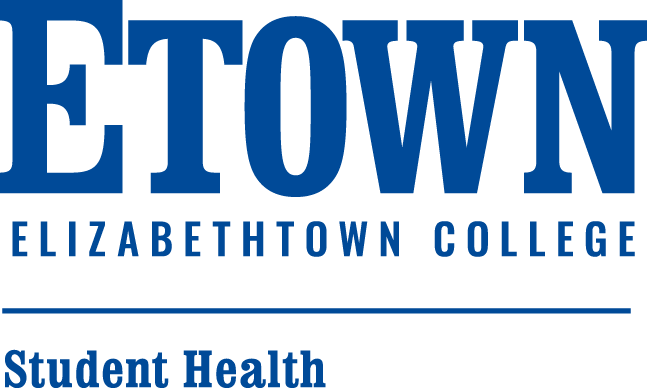Student Health
Health Services for Students
Student Health at Elizabethtown College is dedicated to providing medical care and resources tailored to the needs of our students. Through a strategic partnership with Penn Medicine Lancaster General Health, the College offers a wide array of comprehensive clinical health services.
This collaboration ensures that students have access to high-quality medical care, including primary care, urgent care, preventative services, and wellness programs. Our integrated approach focuses on promoting overall health and well-being, enabling students to thrive academically and personally while having their health needs efficiently managed.

If you are experiencing a health crisis or emergency, please call 911 or the 24/7 Elizabethtown College Campus Safety at 717-361-1111.
Campus Medical Center
The Penn Medicine - Elizabethtown College Medical Center provides a wide range of medical services to ensure students receive timely and comprehensive care.
Whether as a primary practice or as needed, the Medical Center supports student health and wellness with same-day/next-day sick appointments, on-site access to commonly prescribed medications, virtual care, on-site labs and testing, annual physical exams, and wellness services.
Learn More

Health Insurance Information
Elizabethtown College requires all full time students to have health insurance coverage that will cover them during their time at Etown. Penn Medicine Lancaster General Health accepts many different health insurance plans.
UnitedHealthcare Student Resources is a health insurance plan that is offered by the College for those students who do not have a comparable healthcare plan and choose to purchase this coverage. If you feel your coverage is adequate, then you may waive this policy if proof of coverage is provided. This plan will be automatically billed to each student, unless it is waived.
Immunization Policy
It is the policy of Elizabethtown College to require the following immunizations for all students entering Elizabethtown College as first-year students, as well as new transfer students:
- MMR (measles, mumps, rubella): Two doses required. The first dose must be given after twelve months of age.
- Varicella (chickenpox): Either the date of disease is required or two doses of vaccine.
- Tetanus/Diphtheria: Updated tetanus booster within ten years. Tdap vaccine is preferred.
- Hepatitis B: Three doses of vaccine are required.
- Meningitis: One dose given after age sixteen.
Note: Blood tests that show proof of immunity are also accepted as documentation.
While not required by Elizabethtown College, students are highly encouraged to get the influenza vaccine yearly for the flu season, and to stay current with COVID-19 vaccines and boosters.Forms
New students must have their physician complete a document verifying the completion of their required immunizations. This document, along with the required Student Health Forms, must be submitted online through the College’s medical record system, ATS. Follow the instructions and links below for completing and submitting the forms.
Instructions for Completing the Health Forms in ATS | Troubleshooting ATS
Important Deadlines: Student Health Forms are due July 1 for Fall Semester and January 1 for the Spring Semester. Failure to complete this step will affect students’ ability to move on to campus.
Student Health Forms
Medical Withdrawal and Re-Entry Information
- Medical Withdrawal Guidelines
- Medical Withdrawal Documentation Form
- Re-entry Requirements After a Medical Withdrawal
- Medical Withdrawal Re-entry Form
Post-Hospital Information
Additional Resources
As of February 4, 2024, MESA (the Municipal Emergency Services Authority of Lancaster County) provides 911 emergency medical services (including the Northwest EMS services that come to the Elizabethtown College campus from the nearby address listed below). Because an annual fee is now charged to all individuals/households in the Lancaster County service area, and Etown College pays a fee to cover students, everyone receives the following benefits:
- No residual bills for EMS services if your insurance pays
- 50% off EMS bills if you do not have insurance coverage
- 50% off EMS bills if your payment applies to a deductible
- For more information, visit www.mesalancasterpa.gov
Northwest EMS Ambulance
Elizabethtown Station
380 West Bainbridge St.
Elizabethtown, PA. 17022
Phone: 717-361-8220
Office Hours: 8 a.m. – 4 p.m.
Flu Symptoms:
- Fever/chills
- Body aches
- Headache
- Extreme fatigue
- Cough
- Runny/stuffy nose
- Sore throat
Preparation Tips:
Get a Flu Shot: It's crucial, especially during the COVID pandemic. (You cannot get the flu from a flu shot.)
Avoid Sick Contacts: Stay away from people who are ill.
Practice Good Hygiene: Wash your hands frequently and disinfect surfaces.
Avoid Touching Your Face: Minimize contact with your face, mouth, nose, and eyes.
Strengthen Your Immune System: Ensure adequate sleep and a healthy diet.
Flu Shot Information:
Clinic: Flu & HPV Clinic for Students, Faculty & Staff.
Appointments: Available with LGH Physicians at 717-689-4243 or local pharmacies in the Elizabethtown area.
If You Get The Flu:
Rest: Get plenty of it.
Hydrate: Drink lots of fluids.
Medicate: Take pain relievers/fever reducers like Acetaminophen or Ibuprofen as directed.
Isolate: Stay home or in your dorm and limit contact with others.
Notify Professors: Email them about your condition and refrain from attending classes until you've been fever-free for at least 24 hours without medication.
For more information, visit the CDC website for influenza updates, tracking maps, and health resources.
When you have medical questions, there are plenty of online resources that can help you understand symptoms and conditions. Below are some of our recommendations. Remember, though, that information contained on these websites should never replace the advice or care from a medical professional. If you need medical care or a medical consultation, review medical services.
Sexual Health & Wellness Resources
-
Penn Medicine - Elizabethtown College Medical Center
530 East Cedar Street (across from Ober Hall)
Elizabethtown, PA 17022
Phone: 717-588-1059 -
The College Store
- Drop in any time to purchase an over-the-counter pregnancy test. You may also call 717-361-1382 to have the test pre-packaged and waiting for you at the register to protect your privacy.
- CVS - South Market Street, Elizabethtown
- Giant - South Market Street, Elizabethtown
- Sloan's ETown Pharmacy - South Market Street, Elizabethtown
-
Sloan's Norlanco Pharmacy - Cloverleaf Road
- Elizabethtown Sloan's Norlanco Pharmacy will deliver to campus (prescriptions or over the counter supplies) if you create an account. Call 717-653-6888 for more information.
-
Penn Medicine - Elizabethtown College Medical Center
530 East Cedar Street (across from Ober Hall)
Elizabethtown, PA 17022
Phone: 717-588-1059
- Planned Parenthood - Fees are determined on a 'sliding scale' basis, insurance not required.
-
Alder Health Services
100 North Cameron Street Harrisburg, PA
FREE STI Testing Wednesdays 4-8 p.m.
Phone: 717-233-7190 -
SACA/Nuestra Clinica
(English & Spanish)
453 N. Lime Street Lancaster, PA
FREE STI testing, treatment & counseling
Phone: 717-397-6267 -
Lebanon Family Health Services - Fees are determined on a 'sliding scale' basis, insurance not required.
Jeanne Donlevy Arnold Center
615 Cumberland Street Lebanon, PA
Men and women of all ages are encouraged to conduct monthly self-exams to detect cancer.
Students can access free sexual health & wellness supplies at The Well in The Bowers Center for Sports, Fitness & Well-Being. The following resources are available for students for free:
- Over The Counter Medicines
- Band-Aids
- Condoms
- Menstruation Supplies
- Temperature readings
- Sleep masks and ear plugs
- Trial size shampoo and deodorant
- Hygiene Wipes
All questions can be directed to:
Bruce Lynch
Associate Dean of Students for Student Counseling and Health Needs
717-361-1405 | lynchbg@etown.edu
